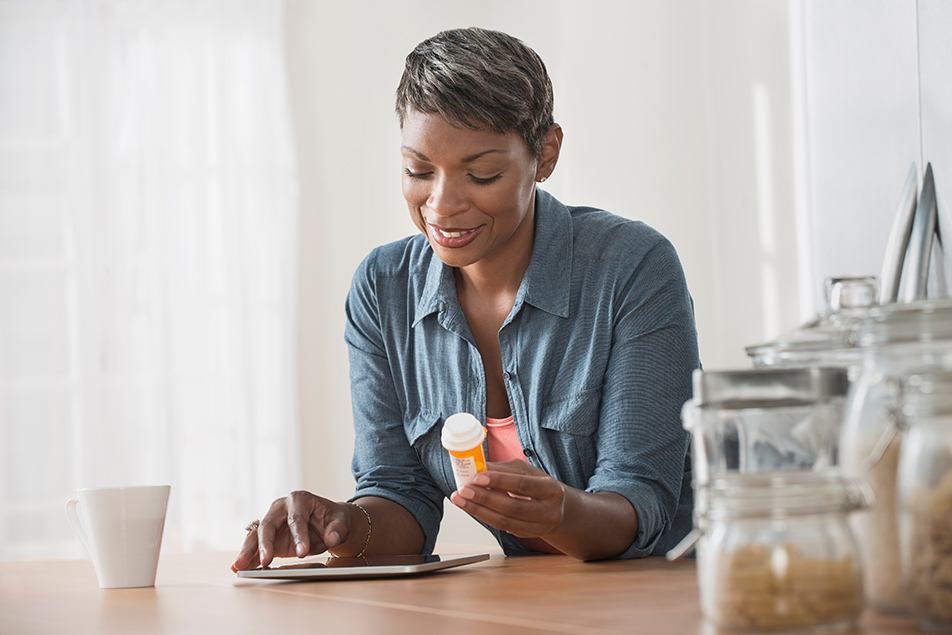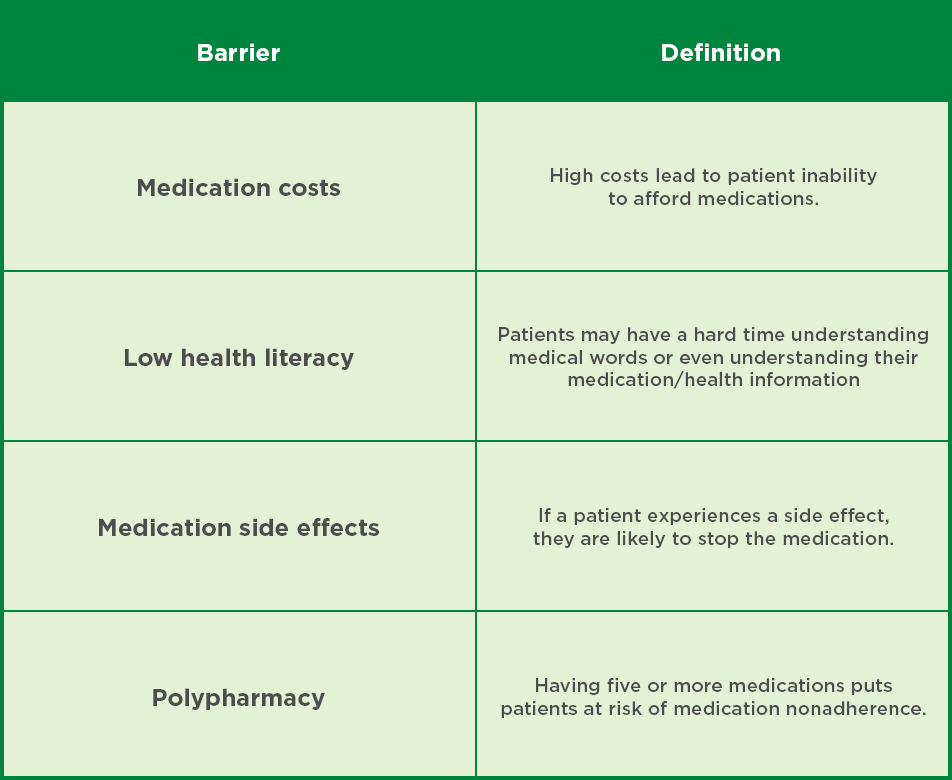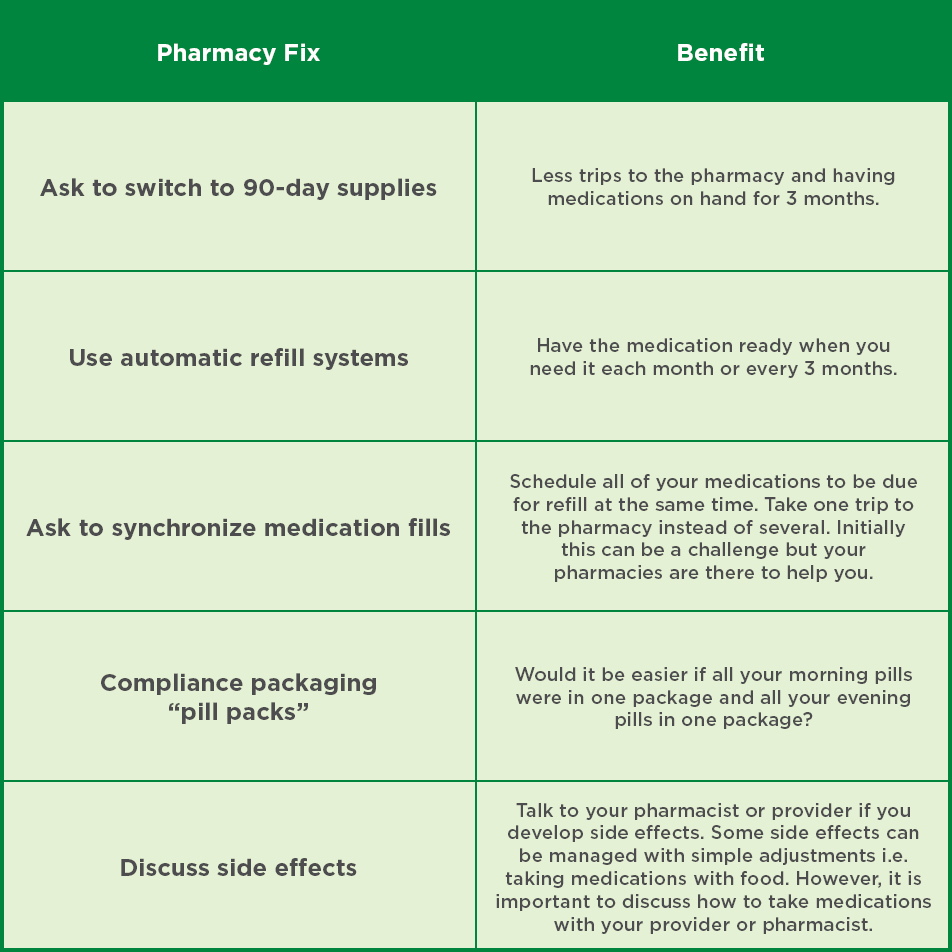
This post was written by Jordan Holder, PharmD, Parkview Health.
Medication adherence remains one of the largest challenges in managing chronic conditions across healthcare. Roughly 40% of patients misunderstand, forget or ignore healthcare advice. Patient nonadherence to medications (intentional or not) is estimated to cause 10% of hospitalizations and 125,000 deaths each year in the United States. Cost estimates for nonadherence are $290 billion annually in the U.S. Additionally, nonadherent patients require roughly three additional medical visits per year and typically pay around $2,000 more than their adherent counterparts.
What does medication adherence mean?
Medication adherence simply means that the patient is:
- Taking medication correctly, as prescribed by a provider.
- Taking medications according to the prescribed dosing, time, frequency and direction.
If we take our medications correctly, we can see their full benefit. Although many of our chronic conditions like high blood pressure or high cholesterol do not necessarily make us feel any different, taking medications that help us control these conditions prevents larger events like heart attacks, strokes, heart failure and kidney disease.
Barriers
Barriers are reasons why we may not take prescribed medication correctly. Here are some of the most common barriers to medication adherence:

Solutions
How can your pharmacy help you?

You can also take action to help yourself remember to take your medications. Some suggestions include:
- Try utilizing a calendar and marking off the day after you finish taking medications – works best for once daily medications.
- Match important parts of the day with taking medications – like brushing your teeth, eating meals or having your daily coffee.
- Utilize a pill box – there are a wide variety of pill boxes to try once daily pill boxes, twice daily pillboxes and multi-week.
- Place medications in a visible location where you are going to see them – try on your bedside table, next to your car keys or coffee pot, or by the door you go out to leave for work.
- Set alarms on your phone.
- Download a medication reminder app on your phone – Medisafe, Mango Health, Round Health, WellthApp, Dosecast, MyMeds or Meds 360° are all great options.
Remember you are in control of your future. If you have any concerns with taking your medications, it’s important to reach out for help. Your healthcare providers cannot help if they do not know there is a problem.



